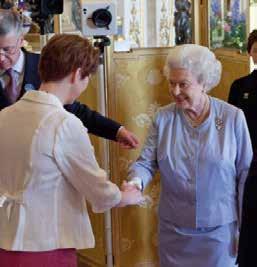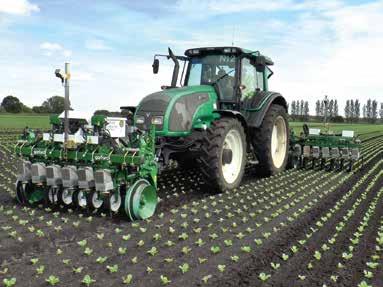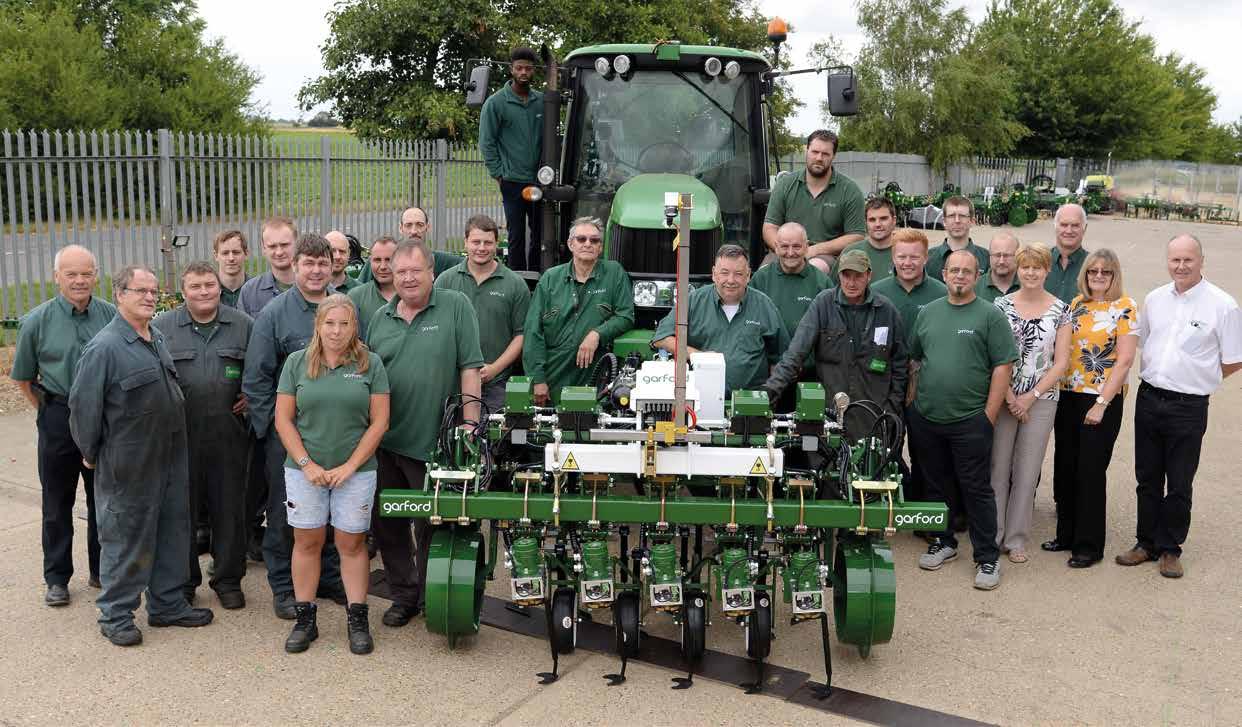
4 minute read
Profile: Garfords of Frognall
Ground breaking technology from Garfords of Frognall
Creating solutions to problems has been the stock in trade of the Garford family since Norman Garford set about building his own sugar beet harvester in his farm shed at Fox Covert Farm, Maxey in the 1950s. He was encouraged to take the prototype he had made to the sugar beet demonstrations held in Lincolnshire in 1953, where it attracted the attention of farm machinery dealers Crawfords of Frithville, who became the first distributors of the GBW Sugar Beet Harvester. Norman formed a company with Reg Butcher and Dick Witt (hence GBW) to manufacture the machine which they did from premises in Mill Lane, Maxey. Over the next decade the machine gained in popularity and in 1963 the firm was made an offer that they couldn’t refuse and sold out to Pershore, Worcestershire-based Fisher Humphries.
Advertisement
18 Norman bought Nunton Lodge Farm at this time and resumed his career as a farmer. He had, however, three sons who had inherited his interest in farm machinery and the trio would modify and build machinery for their own use, thinking nothing of chopping and welding and creating, well… solutions to problems they came across daily on the farm. In the late 1970s they started to manufacture small hoeing and band spraying equipment. These were the days when it was common for farmers to hoe with a tractor-mounted hoe and to send a team of labourers in afterwards to hoe manually. Band sprayers allowed the more costeffective use of selective herbicides as they were able to get closer to the crops. The need for band sprayers declined over the ensuing years but in the meanwhile the team at Nunton had seen a new topping device for a sugar beet harvester and began designing their own version. Once again they were encouraged by British Sugar to demonstrate their model at the National Sugar Beet demonstrations and once again they received a good reception. Manufacturing commenced and soon they were selling the ‘Skew Bar’ topping kit as a conversion kit for other farmers’ sugar beet harvesters under licence from the National Institute of Agricultural Engineers (NIAE). Not long afterward the Garford Victor Sugar Beet Harvester was designed and became commonplace among sugar beet growers across the


UK. Norman, Michael, Robert, Philip and his father in law, Ted Chamberlain, worked together on the beet harvesting products through the 1990s, and in 1994 moved to new premises in Hards Lane, Frognall. In 2010 the business was incorporated as Norman and Ted retired and Robert took on the full-time running

of the family farm, leaving Michael, Philip and his wife Janet at the helm.
In the late 1990s the firm had been approached by the Silsoe Research Institute (previously the NIAE) who had been developing camera technology for mechanical weeding equipment. This collaboration resulted in the launch in 2000 of the first Garford Robocrop Guided Hoe which was refined over the next few years as the company built the market up. In 2007 the Robocrop in-row weeder was launched, not only able to weed in rows but also around individual plants. Working on a grid matching system the camera looks at the crop ahead of the hoeing machine using imaging software to determine the position of the plants. The success of this equipment was recognised with the award in 2010 of the Queen’s Award for Enterprise: Innovation category. Initially the Lord Lieutenant of Lincolnshire, the late Tony Worth, visited the factory to present the Award and later Janet and Philip went to Buckingham Palace where they met the Queen and spent time talking about their developments with Prince Philip. On 10 th March 2011 the Duke of Gloucester visited the Frognall factory and was able to exchange stories of the innovations his family had made in farming, in their case a conveying system for cereal crops using a unique technique.
Now a world renowned name in mechanical weed control and with 90% of their business overseas, the company has benefited from the weak pound contributing to exports, growing by 35% this year. Employing 37 people, all based in Frognall, the company is still providing solutions to problems! As the armoury of herbicides that farmers can use to reduce the amount of weeds in their crops has been depleted and those that can be used severely reduced in effectiveness, the need for a keen mechanical option for weed removal is more crucial now than ever before. In the past it was vegetable growers and organic farmers like Nicholas Watts, who had encouraged the company from the outset, that provided most of the business. Now it is growers, not only of sugar beet but cereals, oil seed rape, beans and soya, who form their customer base as reliance on chemicals is forcibly reduced. France leads the way in terms of its policy to reduce the use of herbicides and so provides the largest export market, but the company is sending products and its field service engineers all over the world.
19 Staff turnover is low and the firm remains a predominantly family run business with Philip’s son Adam and Michael’s son Richard now employed along with nephew Andrew and sister Catherine in the fold. Phil Hales has run the factory for a long time and the Jennings family are all employed by the company; Jamie famous in Deeping St James for having provided the village with its beacon when he was still an apprentice.







